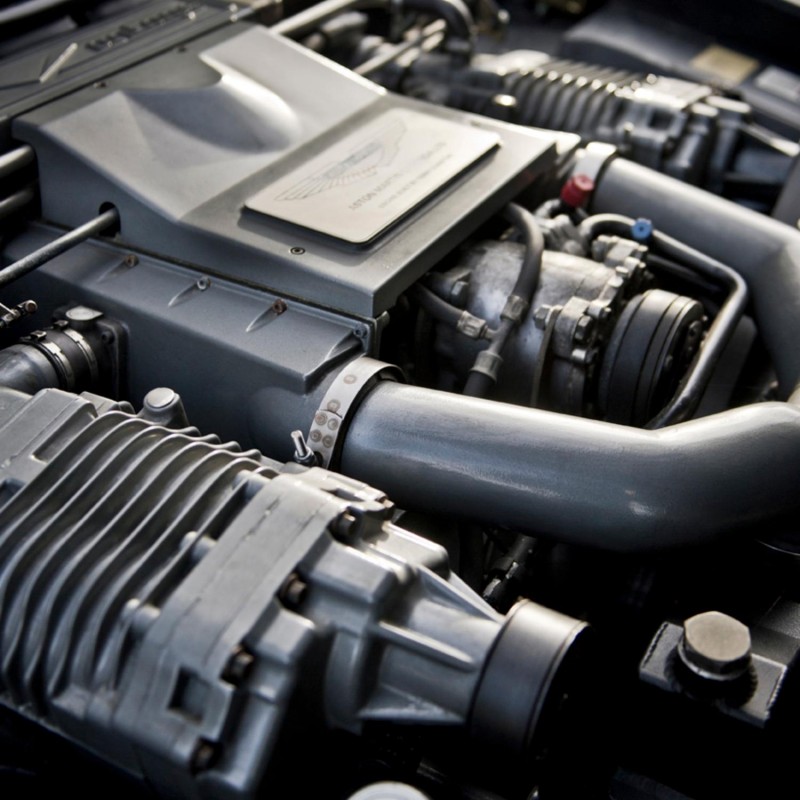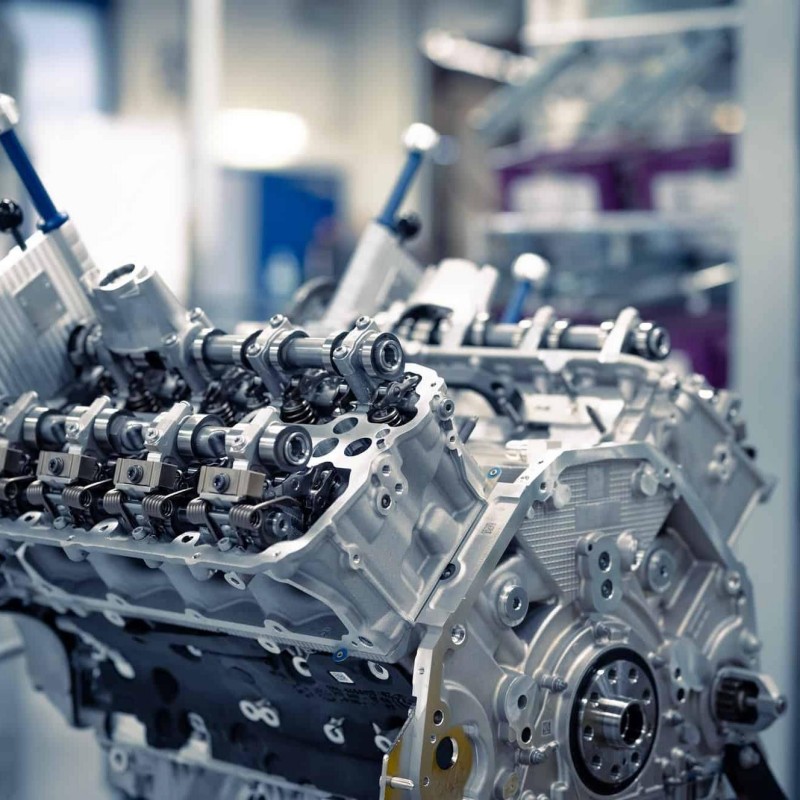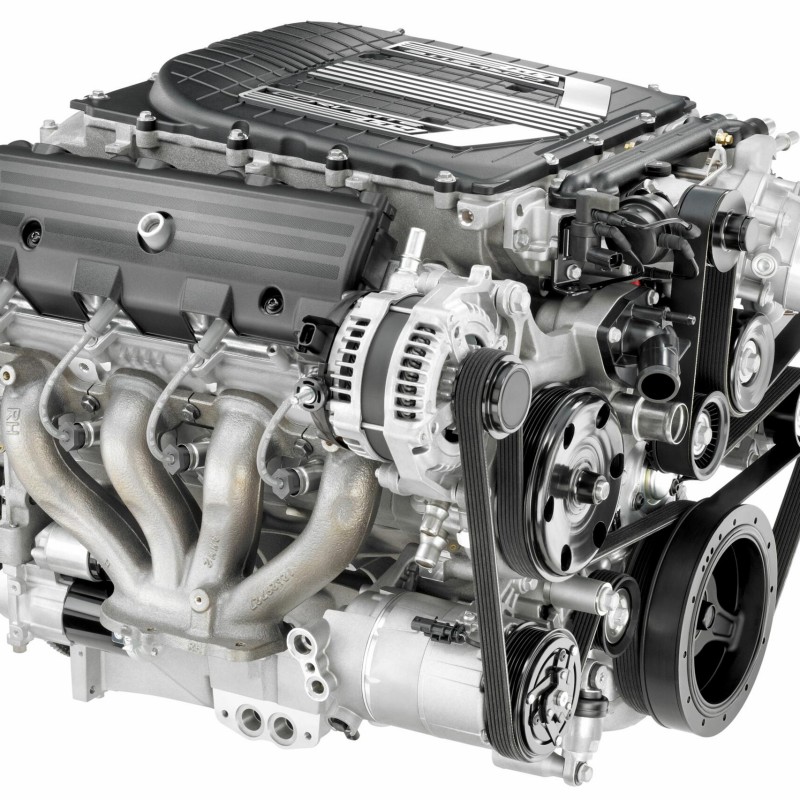When it comes to automotive engineering, few topics ignite more passion than the debate surrounding the best V8 engine. V8 engines have long been the backbone of American muscle cars, luxury vehicles, and heavy-duty trucks, known for their impressive power, torque, and distinctive engine sound. Their configuration allows for a harmonious balance between performance and that thrilling driving experience that enthusiasts crave. However, in recent years, the automotive landscape has seen significant advancements in technology, leading to various manufacturers producing exceptional V8 engines. As a result, choosing the best V8 engine can be a daunting task, especially considering factors such as performance, efficiency, reliability, and overall driving experience. In this comprehensive article, we will explore what constitutes the best V8 engine, examine various models, and delve into their features and benefits. By the end of this article, you will have a clearer understanding of which engines stand out in today’s automotive market.

Understanding V8 Engines: The Basics
To appreciate what makes the best V8 engine, it is essential to understand the basic mechanics and concepts behind this configuration. V8 engines are composed of eight cylinders arranged in two banks of four, set at an angle, forming a “V” shape.
How V8 Engines Work
In a V8 engine, each cylinder operates in a four-stroke cycle—intake, compression, power, and exhaust—resulting in the production of power with every two revolutions of the crankshaft. As a result, you can expect smooth power delivery, high torque across a wide RPM range, and excellent acceleration.
Advantages of V8 Configuration
A few reasons why V8 engines have become a favorite among car enthusiasts and manufacturers include:
- Power and Torque: V8 engines deliver ample power and torque, making them ideal for heavy-duty applications and performance vehicles.
- Engine Sound: The unique rumble associated with V8 engines provides an exhilarating driving experience.
- Smoothness: The arrangement of the cylinders results in less vibration compared to other engine configurations, leading to a smoother ride.
Common Applications of V8 Engines
V8 engines have diverse applications across different vehicle categories, including:
- Muscle Cars: Legendary models like the Ford Mustang and Chevrolet Camaro often employ powerful V8 engines, making them instant classics.
- Trucks and SUVs: Heavy-duty pickups, such as the Ford F-150 and Chevrolet Silverado, utilize V8 engines to provide the required towing capacity and payload.
- Luxury Vehicles: Many luxury sedans feature V8 engines for enhanced performance and refined driving experiences.
With a solid understanding of V8 engines, we can now dive into what distinguishes the best V8 engine from the rest.
The Characteristics of the Best V8 Engine
Identifying the best V8 engine involves examining several critical characteristics that contribute to its overall performance, efficiency, and driving experience.
Power Output
One of the most significant factors in determining the best V8 engine is its power output measured in horsepower and torque. The best engines deliver high horsepower figures, enabling vehicles to accelerate quickly and provide thrilling performance. Torque is equally essential, especially in heavy-duty applications, as it determines towing capacity and responsiveness.

Fuel Efficiency
With the growing emphasis on environmental sustainability and fuel economy, manufacturers have made strides to enhance the efficiency of V8 engines. The best V8 engines strike a balance between power and fuel efficiency, offering competitive fuel economy without compromising performance.
Technologies for Improved Efficiency
Modern V8 engines incorporate several technologies to optimize fuel efficiency:
- Direct Fuel Injection: This system allows for precise fuel delivery, improving combustion efficiency and power output.
- Cylinder Deactivation: This feature enables an engine to shut down half of its cylinders during light load conditions, thus conserving fuel.
- Turbocharging: By using forced induction, turbocharged V8 engines can produce more power while maintaining a smaller displacement, improving efficiency.
Reliability and Longevity
Reliability is a crucial trait that defines the best V8 engines. High-quality materials, manufacturing processes, and advanced engineering contribute to the durability and lifespan of an engine. Engine longevity not only saves owners money on repairs but also ensures consistent performance over time.
Advanced Technology Integration
As the automotive industry evolves, technology plays a significant role in enhancing engine performance and efficiency. The best V8 engines often come equipped with cutting-edge technology, such as:
- Adaptive Cruise Control: This feature enables vehicles with V8 engines to maintain a safe distance from other vehicles, optimizing fuel consumption during highway driving.
- Smart Engine Management Systems: These systems monitor engine performance and adjust parameters automatically, ensuring optimal efficiency and power delivery.
Iconic V8 Engines in Automotive History
Now that we understand the key characteristics that define the best V8 engine, let’s take a look at some iconic V8 engines that have made a significant impact on the automotive industry over the years.
Chevrolet Small Block V8
The Chevrolet Small Block V8, introduced in 1955, has become one of the most legendary engines in automotive history. Renowned for its lightweight design and versatility, this engine has been a staple in various Chevrolet models, including Corvettes and Camaros.
- Power Output: The Small Block V8 offers a range of power outputs, with later iterations producing up to 600 horsepower in performance models.
- Customization: Due to its popularity, countless aftermarket parts are available, allowing enthusiasts to modify the engine for increased performance.
Ford Coyote V8
Ford’s Coyote V8, introduced in 2011, has become synonymous with high performance in the Mustang and F-150 models. Known for its modern technology and impressive power figures, the Coyote V8 represents a leap forward in engine design.
- Power Output: The Coyote V8 produces up to 480 horsepower, making it one of the most powerful naturally aspirated engines in its class.
- Fuel Efficiency: Ford has integrated advanced technologies, such as variable valve timing, to enhance fuel efficiency without sacrificing performance.
Chrysler HEMI
The Chrysler HEMI engine design, characterized by its hemispherical combustion chambers, has been a significant player in the performance engine world. Motors equipped with HEMI technology have earned a reputation for their exceptional power delivery.
- Power Output: The modern HEMI engines can produce over 700 horsepower in performance variants, making them a popular choice for muscle cars and trucks.
- Iconic Status: The HEMI name has become an automotive icon, symbolizing raw power and performance.
Cadillac V8
Cadillac has produced its own line of V8 engines, known for luxurious performance and refinement. The Cadillac V8 engines combine both elegance and power.
- Performance: The Cadillac V8 engines are designed to deliver smooth acceleration and a refined driving experience, making them ideal for luxury vehicles.
- Engine Options: Cadillac has various engine iterations, including the Northstar series, which combines modern technology with traditional Cadillac luxury.
Maintenance and Care for V8 Engines
To ensure the longevity and performance of a V8 engine, proper maintenance and care are essential. Following a few simple guidelines can help keep your engine in top condition.
Regular Oil Changes
Changing the engine oil at regular intervals is crucial for maintaining adequate lubrication and preventing wear on engine components. Depending on your vehicle and driving conditions, following the manufacturer’s recommended oil change schedule is vital.
Monitoring Fluid Levels
Regularly checking and topping off essential fluids such as coolant, transmission fluid, and brake fluid will prevent potential issues. Consistently monitoring these fluids will help ensure optimal engine performance.
Engine Diagnostics
Using diagnostic tools to check for trouble codes can detect imminent engine problems before they lead to severe damage. Periodic engine diagnostics can help identify early warning signs and allow timely intervention.
Inspection of Belts and Hoses
Inspecting engine belts and hoses for signs of wear can prevent costly failures. Replacing worn belts and hoses promptly will ensure reliable engine performance stay intact.
Use High-Quality Fuel
Using high-quality fuel can significantly affect the engine’s performance and efficiency. Fuel with higher octane ratings helps reduce knocking and enhances performance, particularly in high-compression V8 engines.
The Future of V8 Engines in the Automotive Industry
As the automotive industry evolves, so do the technologies that drive it. While V8 engines have long been the champions of power and performance, their future poses both challenges and opportunities.
Shifts Toward Electrification
The push for electrification in the automotive sector has certainly affected the demand for traditional V8 engines. Many manufacturers are investing in hybrid and fully electric vehicles. However, high-performance V8 engines may still find their place in the performance segment, as manufacturers seek to maintain the driving experience enthusiasts expect.
Advancements in Engine Technology
Furthermore, advancements in engine technology continue to evolve. Many manufacturers are looking at ways to optimize V8 engines for efficiency without sacrificing power. By integrating technologies such as turbocharging and direct injection, they strive to enhance performance while addressing environmental concerns.
Keeping the V8 Alive
While there may be shifts in consumer preferences and regulatory changes, the V8 engine remains a beloved choice among enthusiasts. Automakers must continue innovating and adapting to the market demands while preserving the power and performance characteristics that define these engines.

Conclusion
In conclusion, understanding how to identify the best V8 engine involves exploring numerous characteristics, iconic models, and maintenance practices. By taking the time to learn about power output, fuel efficiency, and reliability, you can make informed choices about your vehicle.
The legacy of V8 engines continues as they captivate automotive enthusiasts and remain symbols of power and performance. As advancements in technology and environmental consciousness emerge, the future of V8 engines will likely adapt, ensuring that these remarkable engines remain a cornerstone of the automotive experience.
Ultimately, whether you seek raw power for racing, dependable performance for towing, or simply the joy of driving a high-powered vehicle, V8 engines continue to deliver on all fronts. Understanding their significance leads to greater appreciation, translating to better maintenance and care for these exceptional machines.
Tags: automotive engineering, best v8 engine, V8 engine performance